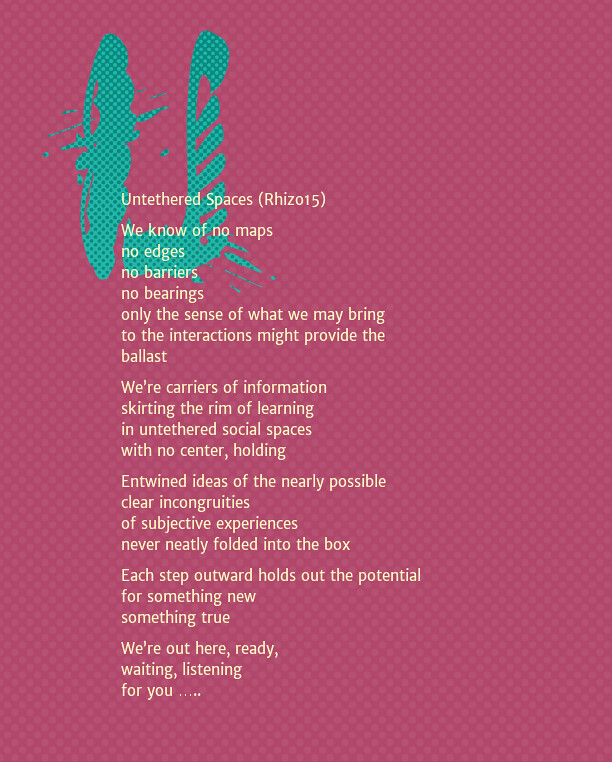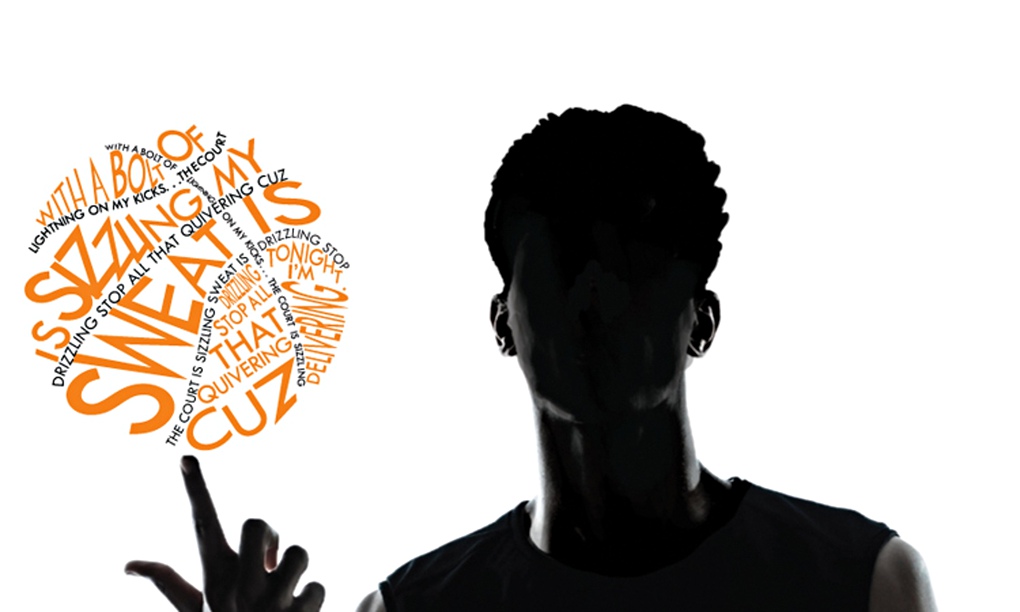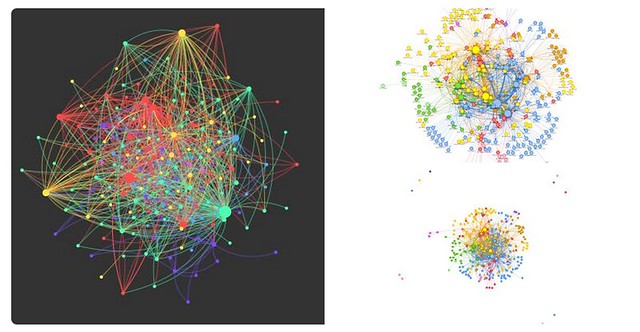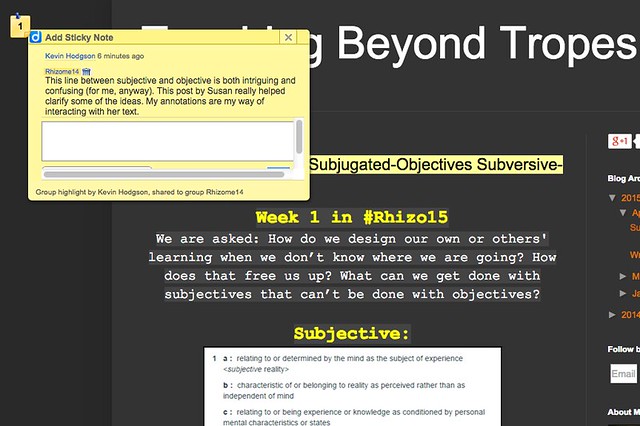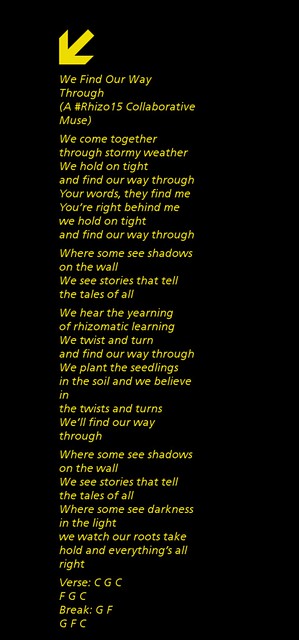
For the last few days, I’ve been collaborating on a song with some friends around the world as part of the pre-start of Rhizomatic Learning (the event officially starts to day). This is the messy and interesting story of how the song — We Find Our Way Through — came to be ….
It began, for me, with a tweet and then a blog post by Sarah, who wrote an intriguing piece about being fine with being private and then mentioned playing her ukulele. I know this goes completely against what she wrote about, but I suggested that if she ever wanted to take the plunge into the public, perhaps we could collaborate.
It turns out that Ron was already moving her in that direction, after reading the same blog post. So, I proposed, let’s try to see if we can collaborate on a song. I didn’t have a song at the time, but during the day, I sat down with my guitar and wrote a very simple song about the idea of community and rhizomatic learning, with the song itself being an example of the swirling, unknown nature of learning experiences.

I went back to a music site that I have tinkered with, Soundtrap, and recorded the rhythm guitar and vocals (first mistake: not recording separate tracks here. Lesson learned). I then invited Sarah and Ron into Soundtrap (and Ron and I even did a loop collaboration as a test), and sent out the lyrics and chords. I think Ron used his MIDI system to record a few tracks and Sarah may have recorded offline and then uploaded into Soundtrap. There are a few places here and there with the timing is off, but we all worked with what we had to work with.
Meanwhile, Jeff had seen a tweet in the #Rhizo15 stream and asked a question. I saw on his profile picture that he is playing a guitar … bingo … consider that an invitation. Jeff came in and added some background guitar and a few tasty licks.
Sarah then wondered, can we do background vocals? She asked me for the notes I was singing. Eh. I have no idea. I’m not that kind of a singer. Barely a singer at all. I sing to write songs. But Sarah kindly worked out a simple harmonic arrangement and Maha responded to a tweet for singers. Soundtrap did not work for Maha, so she recorded herself singing and then emailed me the file, which I loaded up and tried to sync as best as I could into the song (she has a lovely voice). Sarah also suggested that others sing the lead, but the mistake I made in the first track (unable to remove my voice and leave the guitar) made that idea difficult. My track is the glue that everything is built around, for good or bad.
It was while mixing Maha that I noticed my main track had gotten accidentally cut into, so there is now a glitch midway through. Dang. Nothing I can do about it, though. I had saved an earlier version in Soundtrap as a backup but even that one had the glitch. I probably did something at some time. Who knows. But, just as in Wreck-it Ralph, the Glitch is the thing that makes the game unique, I have convinced myself this morning that the glitch gives the song a reminder that anything rhizomatic is messy by nature, and rough around the edges. I almost believe it. Give me time.
I’m pretty proud of how We Find Our Way Through came out and even more proud of how the song emerged as a collaboration, given that we worked remotely from the United States, Scotland and Egypt in just a few days time. We found our way through. We may do a second version, giving other people a chance to sing the lead. I’d like that.
Peace (in the rhizomatic collaboration),
Kevin
